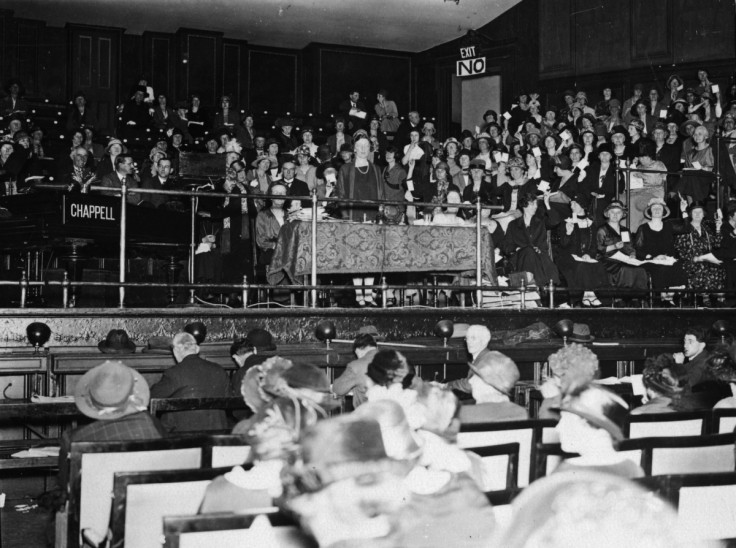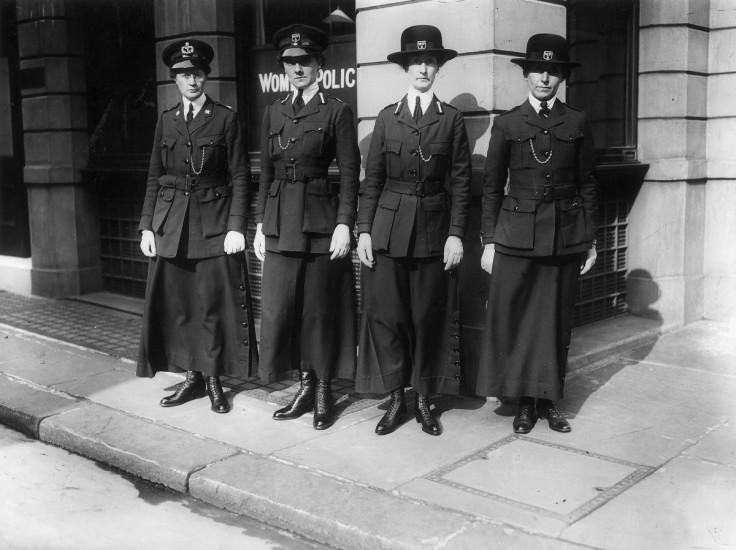Women's Institute centenary: 100 years of UK's largest voluntary women's organisation

Far from its stereotype of baking and jam-making, the Women's Institute (WI) has grown to be the largest voluntary women's organisation in the UK – and has championed the social and economic rights of women for the last 100 years. From campaigning for women on juries to pushing for policy-makers to do more to end female genital mutilation, the WI has had a long and varied history involved in women's rights.
The first Women's Institute meeting in Britain took place 100 years ago today in Anglesey, Wales, to help encourage women in rural areas to be more involved in the growing and preservation of food to increase supplies during the First World War. Since then, the organisation's aims have broadened, now having over 212,000 members across 6,600 WIs.
Origins
The origins of the WI are in Stoney Creek, Ontario, Canada, as a branch of the Farmer's Institute. With the support of the local government, farmers Erland and Janet Lee were instrumental in setting up the new organisation – and brought women from isolated communities together to offer training in home economics, childcare and agriculture. The WI movement in the UK began in 1915, and by the end of 1919, there were 1,405 WIs across Britain.
One of the WI's first national campaigns was in support of the Bastardy Bill in 1920, lobbying for legal and financial support for single mothers. As membership grew, the WI became involved in other aspects of women's rights – including political involvement and women in the workplace. In 1921, WI member Mrs Margaret Winteringham was the first English-born female MP and the second woman in history to be elected to parliament. The WI also began a campaign to ease restrictions on female jurors, as the vast majority were unable to meet the strict criteria.
At the annual general meeting in 1922, a resolution was passed urging more public health education to prevent venereal diseases. That year, the WI campaigned to reinstate the Metropolitan Police's Women's Patrols, which were dissolved after the war to open up more positions to men. The following 26 years saw members continue to push to increase the number of women police, lobbying the Home Office.

In the 1930s, the direction of WI campaigns changed again with resolutions on better supervision of pregnant women in rural areas and greater support for unemployed men and women. At the outbreak of the Second World War, the WI turned its focus back to its origins and the Produce Guild was formed with government funding, to encourage more homegrown food and preserve more fruit and vegetables.
Women's health
The focus of the WI then turned to family planning, alongside the focus on women's sexuality and sexual health during the second wave of feminism. In 1972, members passed resolutions calling for a full and free family-planning service and greater access to nursery education for children. Just a few years later, at an annual general meeting in 1975, the WI underlined its belief in the "equality of opportunity and of legal status for men and women" – pledging to "work to achieve this".
Campaigns to end female genital mutilation have garnered more attention in the last decade and the WI has been involved – most recently in the Shoreditch Sisters WI's vulva campaign against the practice. The quilt and bunting made were used in the BAFTA-nominated documentary The Cruel Cut. Originally, though, the issue of FGM was brought up by the WI in the 1980s, after a member watched a television documentary on the issue and asked the WI to start campaigning against it. In 1986, WI members voted for more information to be made available to the public around HIV and Aids, as stigma in the general public began to grow.
In the last 100 years, the WI has transformed to become a leading organisation led by women – taking on a diverse range of issues and campaigns to improve the rights of women. Most recently, the Shoreditch Sisters WI have supported No More Page 3 and taken on female detention, with a focus on supporting women held at Yarl's Wood detention centre. The group was part of the Women of the World Festival in March, displaying the Solidarity Quilt they created with other WIs and Women for Refugee Women.
© Copyright IBTimes 2024. All rights reserved.






